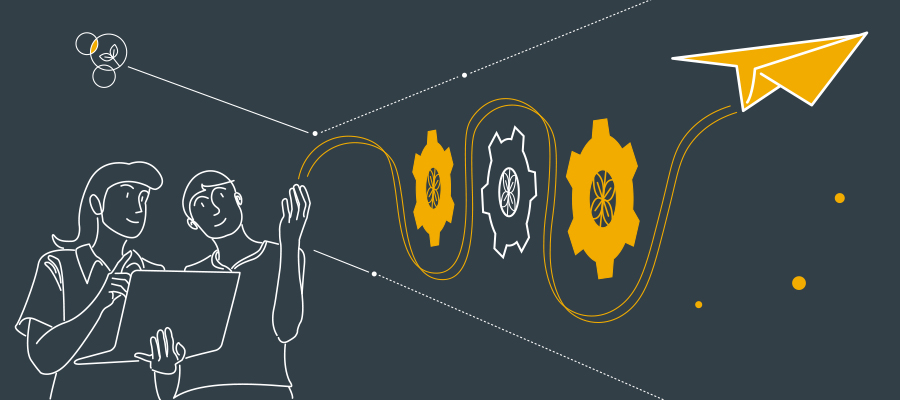On 11th June 2024, Dr Anna Pilz from the Institute for Academic Development and Dr Elisabetta Spano from the Edinburgh Research Office will run a joint one-day online workshop for prospective Marie Skłodowska-Curie Postdoctoral Fellowship applicants and their supervisors with the University of Edinburgh as host institution.
The European Commission has opened the Call for the Marie Skłodowska-Curie Postdoctoral Fellowship Scheme. This prestigious funding programme supports bottom-up research with the aim to foster international cooperation and enabling career mobility for researchers. The scheme is all about acquiring new knowledge and skills, and broadening your professional portfolio and network through secondments and/or placements.
As an MSCA alumna, I was enabled to move from Germany to Scotland to widen my research expertise, develop and expand my network through a secondment in Ireland, and enhance my profile in researcher development through leadership training and writing retreat facilitation training. Having been unsuccessful in my first application attempt, I know the work that goes into this fellowship application and can share from the experience of being rejected and then successful on second attempt.
For prospective applicants with the University of Edinburgh as host
Drawing on this first-hand application experience, I am conscious of the emphasis on training, mentoring, and professional development that your application documents need to provide. Together with my colleague Dr Elisabetta Spano from the Edinburgh Research Office who has supported applicants to the scheme, I am looking forward to providing expert advice to prospective applicants with the University of Edinburgh as host.
You can read more about the programme and register here for the MSCA Postdoctoral Fellowship Proposal Workshop.
11th June 2024 | 9:30-16:00 | Teams Webinar
Our webinar will provide a comprehensive overview of the scheme, detail how the University of Edinburgh can support you throughout the application process, and offer in-depth proposal writing prompts and advice. Participants will also hear from current Edinburgh-based MSCA fellows and supervisors with top tips and the opportunity for Q&As.
For prospective applicants to the scheme through other host institutions
If you’re currently based at the University of Edinburgh and seeking to apply with another host institution, the Institute for Academic Development is still able to support you in crafting a compelling and clear narrative how you will be enabled through the fellowship to pursue a career within or beyond academia.
You can work through our Comprehensive Guide to Fellowship Applications and the worksheets that prompt you to reflect on your past, present, and future skills and experiences as well as to identify the synergies between your profile, your proposed project, and your host institution.
You can book a 1:1 consultation about building your research profile in line with your career goals and research vision.
How to Build your Research Profile – Booking Link
You can come to a 2-hour workshop on How to Write your First Fellowship Application | 24th April | 14:00-16:00 | Zoom – Booking Link
Top Tips
Give detail!
- To give reviewers the sense that you have thought through the project and have concrete plans you need to provide specifics. Don’t just state that you’ll engage with a general audience but be specific about who that audience is and how you’ll target them.
Show how you will develop through the Fellowship!
- The focus of the scheme is on training and professional development. The exciting element here is that you don’t need to be an expert in everything but rather the Fellowship will enable you to stretch yourself to learn new methods, develop new expertise, acquire new skills such as a language or completing certificates that allow you to develop coding or digital skills, for instance. Show clearly what you’ve planned for your professional development by identifying relevant training at the host institution and/or during your secondment and/or placement.
Highlight the international networking opportunities!
- This is a mobility scheme with an emphasis on building an international reputation and network. Don’t leave reviewers guessing what types of international networking opportunities will be available to you through your supervisor and at your host institution and/or during secondment.
Further resources for those applying through other host institutions:
Watch #ECRday2021 Panel on Marie Curie, Wellcome Trust & Irish Research Council “Enterprise” – both Dr Anna Pilz and Dr Diletta de Cristofaro talk about Marie Curie applications.
Watch #ECRday2022 Panel on European Schemes – Dr Shonagh Hill shares her Marie Curie application experience.


